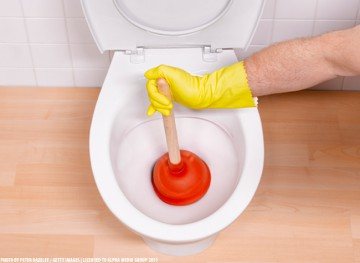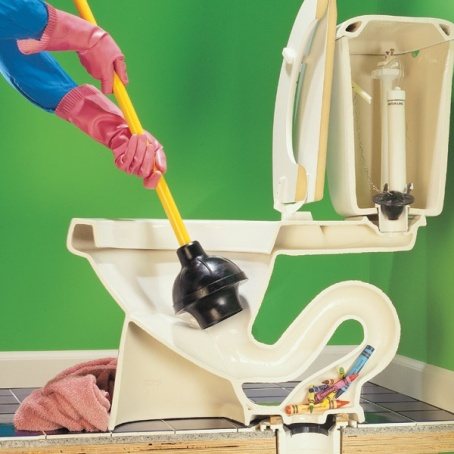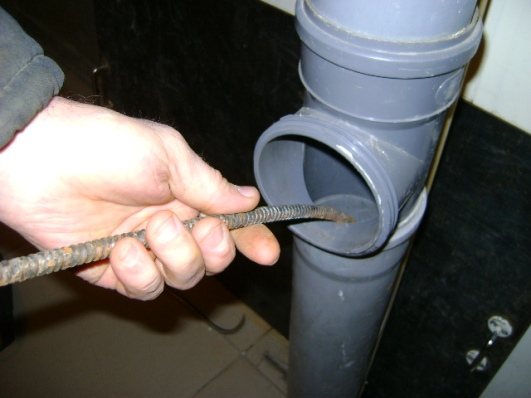Patronymic Index, city, street, house, apartment E-mail Application for committing an administrative offense under Article 7.23 of the Code of Administrative Offenses “Violation of standards for providing the population with utility services” At the address: Your city, street, house, the management organization violates the norms of the Housing Code of the Russian Federation and the Rules for the provision of utilities services, namely in the apartment: problems with sewerage. Here briefly describe the essence of the problem. No more than two or three phrases. Emotionless. Example: “I live on the first floor and due to blockages in the common pipes in the apartment there are regularly problems with the sewerage system. In accordance with paragraph 9 of the Rules for the provision of utility services to owners and users of premises in apartment buildings and residential buildings, approved by Decree of the Government of the Russian Federation No. 354 of May 6 2011, when providing utility services, uninterrupted removal of domestic wastewater from residential premises must be ensured.
The sewage system in the apartment is clogged, who should I call? Actions in case of blockage
When the sewage system in your apartment is clogged, you can’t hesitate. First of all, you need to take actions to prevent further flooding:
- Shut off the water supply;
- Inform residents about the blockage;
- Call special services.
If the blockage occurs in more than one apartment, then it is necessary to shut off the water supply in other places. Use of the sewer must be discontinued until the problem is resolved.
If you lack the skills to deal with the blockage yourself, it is not recommended. There are special services for this.
Where to go?
The use of certain services depends on the nature of the blockage:
- a local blockage, a broken drain pipe or an interfloor riser that did not cause a flood - call the management company to call a locksmith on duty;
- sewage overflows from wells - contact Vodokanal;
- There is a global flood of the entire floor - urgently call emergency services.
Contact information for special services is contained in receipts for payment of housing and communal services. If you don’t have a receipt at hand, it is recommended to dial the general number 112 and ask for the regional service number.
Who is guilty?
After taking measures to prevent flooding, the search begins for the cause and culprits of the problem. This may take a long time. Determining who is at fault directly depends on the cause. If the blockage occurs once, then two options are possible:
- the person at fault will report the problem;
- Representatives of management companies will determine the guilt after inspecting the sewer system.
Specialists visit apartments and draw up an inspection report for the sewer riser. Thus, the fact of an emergency is recorded in the document. In practice, there is no need to find the culprit - the person himself declares the problem. Damage to property due to a flood must also be documented.
If the sewer drains are constantly clogged, then the reason is the poor quality of services provided by the management company. The organization ignores periodic inspection of the system. In this case, the culprit will be the management company.
Where to go and who is to blame
Who to call and where to go in an emergency when the sewer is clogged and there is a threat of flooding:
- If there is a blockage in the toilet, a pipe has burst, the riser is clogged, the first floors or basement are flooding, you need to call the fitters of the Housing Office or the management company.
- Sewage wells are under the attention of the water utility. He must also service the yard sewerage system.
- Emergency services are called in emergency situations when water floods several floors at once in a continuous stream.
- The telephone number of dispatch and emergency services that carry out repairs and control of sewage systems must be listed in receipts for payment of utility services.
It is important to know! Before the workers of the above services arrive, you need to try to fix the problem yourself, warn other residents about the danger, and, if necessary, turn off the water in the riser.
If the sewage system becomes clogged and clogged constantly, the reason for this is the negligent attitude of the services that do not carry out preventive maintenance and cleaning in a timely manner. Finding the culprits and investigating what caused the clogged sewer can take a lot of time.
In the event of a serious blockage of the sewer system, resulting in flooding and significant damage to property, it is necessary to call representatives of the management company, repairmen, and plumbers, eliminate the contamination and record the consequences. You can remove small blockages yourself by purchasing chemicals at the store or preparing solutions at home. It should be remembered that timely preventive measures, monitoring the operation of the sewerage system and proper handling will prevent breakdowns and eliminate negative consequences.
The sewer in the basement is constantly clogged.
Its specialists must service the yard drainage system.
- There are also emergency services. You can turn to them when you manage to clog your neighbor’s pipe and he floods several apartments. Such services respond to calls in case of emergency.
- Telephone numbers of dispatch services that carry out sewer repairs and cleaning must be on receipts for utility bills.
ATTENTION! If in an emergency it is difficult to find the dispatcher’s phone number, you can dial the hotline number operating under the city administration or the rescue service. There you should provide the contact information you are interested in. Before the arrival of the masters, you should also follow a certain algorithm. If liquid appears on the ground floor from sewer pipes or in the apartments above, in the basement, it is advisable to warn other residents and turn off the water for a while.
Fine for sewer blockage. Whose responsibility is it for a clogged sewer?
What do we know about the drainage system of residential buildings, or what is also called the sewerage system? You can talk for a long time in technical terms, risers, cleaning, revisions, manifold, etc., but in general everything is simpler. The drainage system in multi-apartment residential buildings consists of communications made of cast iron or plastic pipes with a diameter, usually 50-100 mm, through which liquid human waste is discharged by gravity in apartments. From apartments, through the basement and then bypassing several sewer chambers, wastewater is collected in pipes of larger diameter, and then flowing for several tens of kilometers, it ends up in treatment facilities. It's simple, but, unfortunately, many residents of apartment buildings have the impression that the liquid waste system can be used as a mini garbage disposal. Throws rags, clothes, cotton wool, cardboard, hygiene products, household and construction waste, large food waste, etc. into the sewer. All this garbage easily enters the system through the washbasin, toilet; it can only be limited by the diameter of the pipe, but it is not so easy for the garbage to pass further. a multi-meter march through sewer pipes and end up somewhere at a wastewater treatment plant. This same garbage accumulates in turning points, outlets, wells, reduces the permeability, contaminates the chambers, and ultimately leads to blockages. There are different blockages, some are not large, which service companies can quickly remove without consequences for residents. Larger blockages in the networks overwhelm the chambers, flow out into the yard, playgrounds, parking lots, causing inconvenience to residents, motorists, and children. A blockage is also possible inside the house, in the basement or floor; with such a blockage, within an hour, waste products begin to flow through toilets, sinks, washbasins, flooding apartments and basements. Removing a blockage is a well-established process for operating services; of course, varying degrees of blockage require a certain amount of time, but the consequences in the form of odor and elements of remaining waste on the surface will remind of themselves for a long time and bring discomfort to everyday life. Of course, service organizations regularly carry out preventive maintenance of drainage systems, but it is not possible to predict where and when someone will throw garbage into the sewer and stop the human life system.
Preventive measures
To reduce the need to contact a plumber, you should follow simple rules for using the toilet.
- You cannot throw paper (except toilet paper) or construction waste into it.
- Food waste, which can swell in water and create an obstacle to the drainage flow, is also prohibited.
- The toilet must be installed by a competent and experienced plumber who knows at what angle the pipes are attached and how long they should be. Water from the toilet should drain freely and quickly.
- An experienced, competent plumber should clean the sewer not only in the basement, entrance, but also in the apartment, if the blockage is complex. The result of improper cleaning work can be an accident that affects the entire entrance and even the house. Specialists have professional equipment that will clean the pipes from the inside, ensuring they have the necessary permeability.
Most often, the cause of a sewerage break is a careless, irresponsible attitude towards it on the part of the residents of an apartment building.
To avoid the problems described above, you should be careful and use plumbing fixtures only for their intended purpose .
Clogged sewer riser, who is to blame? How does a sewer clog occur?
The riser of the general house sewerage system is made of different plastic materials - uPVC and cast iron. The risers have certain dimensions; if it is made of plastic, its diameter is 110 mm and no more than 100 mm inside, and if the riser is made of cast iron, then its internal passage is reduced to 70 mm due to the thickness of the cast iron walls.
A sewer blockage in an apartment building usually occurs when:
- if the sewerage system is not used for its intended purpose, but everything that gets into it is flushed into it, something that needs to be thrown into the garbage chute, and not into the toilet;
- Sprinkling litter from cat litter there;
- Rags for cleaning floors;
- Construction waste during renovations in apartments;
- Accumulation of human or animal hair in pipes.
All of the above can create a plug in the pipe or very poor permeability. The common riser (pipe) in the basement cuts into the horizontal common pipeline and turns at 90 degrees. The riser can be rotated from two smooth connections at 45 degrees or from one corner at 90 degrees. If objects not intended for sewerage get into the pipe, the riser can become clogged at the point where it taps into the common line, which will lead to poor passage due to blockage. These are the traditional causes of blockage.
The sewerage system must operate around the clock and uninterruptedly to ensure normal life for residents living in an apartment building. Therefore, employees of the Management Company must regularly inspect the sewerage systems, identify such “problem” areas, promptly clean them and break through blockages, thus avoiding the occurrence of flooding in the apartments of the first floors with sewerage.
To fix a sewer blockage, you must contact the Management Company to draw up a Flood Report and an independent expert by calling 8-495-787-17-43 or 8-916-163-52-55 to assess the damage from the flood of the apartment.
Where to call if the sewerage system in Kyiv is clogged. Where to go if the drain in your apartment is clogged?
The requirements for the procedure and form for filing citizens' complaints are enshrined in Article 7 of Federal Law No. 59-FZ of May 2, 2002. When filing a written complaint by mail, a citizen must indicate: the name of the government body to which he is sending a written appeal, or his last name, first name, patronymic of the relevant official, or position of the corresponding person, last name, first name, patronymic (the latter - if available), postal address to which the response should be sent, notification of forwarding of the appeal. Citizen complaints that do not contain the above data ARE RECOGNIZED ANONYMOUS AND NOT BE CONSIDERED. In the text of the complaint it is necessary to describe the essence of the violation of rights, the circumstances under which it occurred, indicate detailed information about the organization and officials on whose part the violation was committed. ATTENTION! If, after contacting Rospotrebnadzor, housing and communal services or management company specialists nevertheless went to the address of the leak and fixed it, you need to inform the last point of the complaint. You can also attach to the application to the court evidence of damage to personal property due to a leak or sewer break, if it arose due to the failure of public utilities to fulfill their duties. After eliminating the causes of the stench in the basement, unpleasant sewer odors may continue to be felt for some time.
Who is responsible for the sewerage system in an apartment building? Key Aspects
In order to properly organize the replacement process, it is necessary to take into account some nuances:
- replacing and repairing a riser in a single apartment will not provide any particular benefits if the entire pipe system, including basements, has not been replaced;
- risers are necessary elements of engineering communications; if there are malfunctions in their operation, emergency situations arise that can cause irreparable harm to health;
- in legislative documents they are not designated as personal property, they belong to the management company that maintains the house. This serves as some limitation when replacing by the property owner;
- replacement of sewerage and water supply pipes and risers is included in the overhaul, contributions for which are paid by all residents of the house under the EPD. If there are many beneficiaries living in an apartment building, then the funds collected by the management company may not be enough, so additional contributions will need to be collected from residents who do not have privileges. In such cases, they put forward their own replacement conditions;
- The lifespan of the house is 25 years, after which major repairs are required. But ongoing audits extend this period, but this cannot be done indefinitely;
- the management company may not carry out major repairs during this period of time. In the same way, the owner of any equipment is not obliged to repair it if it is in good working order and working. This allows both the management organization and the residents to maneuver in this matter;
- a riser that has undergone emergency restoration work in the interval between major repairs is considered emergency until it is completely replaced, even if only a hole was welded in it through which only a small volume of water flowed;
- To recognize it as an emergency, traces of repairs made are necessary. At the same time, the statute of limitations does not matter; if there are many such signs, then it is the fault of the management company, which did not carry out major repairs on time.
- engineering communications in the house need to be periodically repaired, be it replacing the sewer riser, water supply or heating;
- Even a non-specialist can install pipes inside an apartment, but a professional is needed to replace the riser.
Sewage cleaning in apartment and private buildings
Cleaning a toilet, or rather a riser sewer pipe, seems to be quite a difficult task if you do not have professional equipment at your disposal. In this case, removal of the toilet is required, which is accompanied by such unpleasant moments as damage to the floor tiles and depressurization of the silicone.
Flushing a clogged drain
All these troubles can be avoided if you seek the help of professionals who have special tools at their disposal.
How often should drains be cleaned? Choosing a remedy
Flushing sewer pipes can be done using two methods:
- Mechanical methods involve the use of a special device or tool to remove the debris plug;
- To perform chemical cleaning, you need to buy a special product for cleaning sewer pipes. The special reagents included in its composition soften the mash and decompose it into liquid components.
By the way, mechanical cleaning of sewer pipes is the most difficult, but sometimes the most effective cleaning method.
This type of cleaning is recommended when the drainage of water has completely stopped and a significant blockage has formed.
Cleaning using chemicals is less effective, but not as troublesome. Efficiency, in this case, directly depends on the product used.
For example, there is acid on sale for cleaning sewer pipes; it copes with blockages no worse than cleaning devices and tools.
Cleaning chemicals should be used in situations where the blockage is not very large and the water drain is not completely blocked.
To choose the right product, you need to understand where the congestion occurred.
Most often, the section of sewer that connects the toilet to the riser, the kitchen sink to the bathroom outlet, or the bathroom to the toilet outlet becomes clogged.
If there is a blockage in the bathroom or kitchen, cleaning the sewer pipes with chemicals may be recommended.
And before cleaning the sewer pipes coming from the toilet, you should arm yourself with a plunger or cable.
When purchasing a chemical cleaning product, you must carefully study the packaging.
The instructions must indicate the material from which the pipes are made, since the chemicals in the product may not be suitable for all types of products.
Clogged sewer in an apartment building: who is to blame, what to do and where to call

Sewer lines are not always in perfect condition. This largely depends on how the residents of the houses use them. In order to avoid problems resulting from clogging, you must follow certain rules for using this system. And when a sewer blockage occurs in an apartment building, not every resident knows what to do.
If you want to find out how to solve your specific problem, please contact the online consultant form on the right. It's fast and free! Or call us at 8(800)-350-30-02 (the call is free for all regions of Russia)!
What to do
Let's start with where to call if the sewer is clogged. Cleaning of local (within an apartment or house) and general (risers, etc.) blockages is carried out by plumbing equipment installers on the day shift of the housing department, housing and communal services department or other management organization. Blockages in wells (yard sewerage) are transferred to the adjacent organization - Gorvodokanal.
Emergency teams only respond to general blockages (that is, when someone else’s sewage enters your apartment or house).
All persuasion to come at three in the morning because of a clogged bathtub will be in vain. No, not because all plumbers are emotionless alcoholics. This reason for the call is equivalent for them to calling an ambulance about an itchy heel: it seems like a completely medical problem, but one that can be tolerated until a visit to the local physician.

In addition to housing departments, many commercial organizations provide plumbing services.
However, my friends, let's be realistic: nine out of ten readers want to know how to solve the problem of blockages with their own hands. Need recipes. As they say in the hero city of Odessa, I have them.
Three steps to defeating a blockage.
Before grabbing a cable or a bottle of Mole, you should use the main tool - logic:
- Find out why the drain is clogged. In 90% of cases, the desired results are obtained by asking family members about their last actions before the problem arose. The remaining 10% is the overgrowing of the sewer with grease (it is easy to recognize by a sure sign: the rate of water flow smoothly slows down over several days or even weeks) and blockages outside your apartment/house caused by neighbors;
The sewer is clogged: what to do?
If an emergency occurs, be sure to turn off the water and notify other residents that it is impossible to use the water supply and sewerage for some time until the problem is eliminated.
The most important thing is not to panic, but to calmly and rationally take steps to eliminate it. In order to avoid accidents in the house, residents must follow the rules for using sewer systems, and housing and communal services must maintain the system in working order.
Causes of blockage in the public sewer system
The reasons can be very different, they can be grouped according to the following characteristics:
- wear of pipes or the use of unacceptably small diameters. Everything here is more or less clear. In this case, blockages will occur very often until the communication system is brought to working condition;
- violation of laying technology. In particular, incorrect installation of pipe slopes. If the slope was small - simple, then blockages will occur periodically. The optimal degree of slope is considered to be raising the pipe by 2 cm for each meter of pipe;
- Improper installation of the toilet can also increase the incidence of blockages. The use of cement during installation provokes a decrease in the diameter of the pipe, which will certainly lead to blockage;
- leaky sewerage system. The entire system is designed to be self-cleaning. When a large object, say a rag, gets in, the following actions occur: it passes along the vertical riser unhindered, but as soon as it hits the horizontal pipes, its movement slows down and it blocks all passages. But immediately the water pressure begins to increase, under its action the ill-fated rag will jump out of the pipe like a cork from a champagne bottle, performing the function of a brush (collecting debris along the way). All this happens if the sewer system is well sealed. Otherwise, the rag will get stuck in the pipe for a long time;
- The most common cause of blockages is residents’ careless attitude towards communications. As a result, solid household waste, rags, cellophane, papers, etc. enter the system. Which accordingly leads to an accident.
Causes of clogging and their consequences
By understanding the reasons, you can always prevent their occurrence. The most common and constant of them are:
- Wear of existing communications or initially incorrectly selected pipe diameter.
- Violation of laying technology. In horizontal sections, the slope must be strictly observed, accepted at 2 cm per meter of pipeline.
- Incorrect installation of the toilet. During installation, you need to use the solution rationally and ensure that it does not narrow the diameter of the drain passage.
- The drainage system is not sealed. All sewers are designed as self-cleaning. If a large object gets into the pipe and gets stuck in a horizontal section, the water pressure increases. Due to this, the garbage will fly out, acting as a ruff that sweeps away all other contaminants in its path.
- Overgrowing of the risers and water supply of the house with deposits over a long period of operation. Over time, roughness and irregularities appear on the walls of the pipes, to which hair, pieces of paper, pieces of cotton wool, and small debris cling, gradually filling the entire passage. Grease from dishwashers and kitchen sinks first accumulates, and then hardens, crystallizes and forms entire growths.
And of course, the main cause of blockage is the negligent attitude of the residents themselves. The drainage system is the pipes through which wastewater flows from apartments to the basement or cellar, then into sewer chambers and along large-diameter highways, covering the distance to treatment facilities. Many careless users constantly use the sewer system as a garbage chute, throwing rags, clothes, household waste, and personal hygiene products through the toilet, washbasin or bathtub. Debris gradually accumulates at turns, in wells, reduces the performance of the system, contaminates the chambers and, ultimately, leads to blockage.
It is important to note! Blockages can be minor, which special services can temporarily remove in a relatively short period of time. But there are also large-scale ones, in which case the drains first flood the basements, and from the flooded lower room, then flow out, filling the courtyards. In this case, the main victims are usually the residents of the first floors.
A sewer pipe can also become clogged inside the house, then water will go up the risers and begin to flow out through the bathtub, toilet, and washbasins. Removing such a blockage will take a lot of time, and during this time the drains will fill the entire apartment with an unpleasant odor, ruin the furniture and decoration, and may lead to the need for major repairs.
Sewerage clogged in an apartment building: consequences
The consequences of a blockage in the sewer of an apartment building can be disastrous not only for the owners of the apartment in which the accident occurred. This could be a broken toilet or burst pipes.
Water from the sewer system may flow into the basement, causing the odor to spread throughout the house. Stagnation of sewer water in the basement will lead to the destruction of the foundation and damage to other communication structures.
In addition, in a putrefactive environment, various bacteria will multiply, which negatively affect human health.
The sewer is leaking, where should I go?
- 1 Reasons for the appearance of stench from the basement
- 2 What to do if there is a smell from the basement?
- 3 Can I eliminate the source of the problem myself?
- 4 Where to go for help?
- 5 Solving the problem taking into account the legislation
complaints Causes of stench from the basement Unpleasant odors occur in the basements of both old apartment buildings and new ones. If in old buildings the cause is the wear and tear of ancient pipes, then in recently erected buildings leakage may occur due to improper installation of the sewer system. At first it only stinks in the technical room, but the “aroma” quickly penetrates into the entrance, and from there into the apartments on the lower floors.
What to do if the sewer is clogged in an apartment building
When there is a sewer blockage in an apartment building: who is to blame, what to do and where to call - all these questions immediately arise in the mind. The most important thing is not to panic.
Try to reasonably assess the situation; if, according to your assessment, you think that the blockage does not pose a great danger, then start eliminating it yourself. If there is an accident in the bathtub, then a plunger can come to the rescue.
Pour some water into the bath, press the plunger firmly to the hole and make forward movements. As a result, the clog in the pipe will begin to move, a clump of possible particles and hair will move closer to the hole and can be easily removed.
If a blockage occurs in the toilet, you can clear it using a special steel wire.
Well, if you were unable to correct the situation yourself, then you should contact a special dispatch service. Her phone number must be on receipts for utility bills.
If the sewer system in an apartment building often gets clogged, it’s worth thinking about whether we’re doing everything right when using house systems? And reconsider your attitude towards the rules of the hostel in an apartment building.
How to contact dispatch service
How can I contact the control room of the management organization of my building?
You can find out the address and telephone number of the management organization of your building on the Moscow House website. In the search bar, select the “Learn about home” tab and enter the address. General information about the house will appear in the window that opens. Click on the name of the management organization and scroll down to the “Control Room Operations” section.
How to contact the Unified Dispatch Center (UDC)?
In cases of accidents on the in-house water supply, heating, sewerage and electricity systems, you can contact:
- to the Unified Dispatch Center:
- by phone (24/7);
- online through the Moscow State Services mobile application. In the “Unified Dispatch Center” section, you must fill in the required fields and submit your application for work. The application status will be displayed in the application.
You can find the hotline numbers of Mosvodokanal, Mosgaz, MOEK, Mosenergosbyt and other organizations working in the housing and communal services sector in Moscow on mos.ru.
In what cases should you contact the dispatch center?
You can contact the dispatch service for help in emergency situations - for example, if:
- your apartment is flooded with water;
- no hot or cold water;
- there is no electricity in the house;
- the sewer is clogged;
- you smelled gas in the entrance.
You can also leave a request if:
- electrical appliances in common areas are faulty;
- the door to the attic is broken or faulty;
- you smelled foreign odors in the entrance or saw rodents or insects.
What to do if the apartment is cold or the hot water temperature has dropped?
Too low an air temperature in an apartment or hot water in a tap may be reasons to contact the management organization or a single dispatch center.
According to the Decree of the Government of the Russian Federation dated 05/06/2011 N 354 “On the provision of utility services to owners and users of premises in apartment buildings and residential buildings”, the air temperature in residential premises should be no lower than +18°C, in corner rooms - no lower than +20° WITH. The permissible temperature decrease at night (from 00:00 to 05:00 hours) is no more than 3°C. The hot water temperature must be no lower than 60°C and no higher than 75°C.
What to do if in an emergency there is no way to call the control room?
If you need to urgently contact the dispatch service, but there is no way to call or leave a request in the mobile application, go out to the entrance, go down to the first floor and press the button to call the dispatcher. Or call the elevator and press the button in the cabin to contact the dispatcher.
What to do if the toilet is clogged - who to call?
The toilet is clogged - what to do, who to call, who to run to? Such a problem will knock even the most phlegmatic person out of the saddle. But don’t rush to panic - all problems can be solved, including this one.
First signs of a problem
- An unpleasant smell has appeared in the toilet - this is the first sign of difficulty with the passage of the drain riser, which equalizes the pressure in the sewer pipeline.
- After flushing, cloudy water remains in the toilet - this is the first sign of a problem with the passage of the hydraulic valve of the toilet. Most likely, there is a foreign object in this area.
- The water from the tank drains into the hole in the toilet too slowly - when flushed, the bowl is filled almost halfway and goes down the drain gradually. This is the first sign of a violation of the patency of the sewer pipe, inside which a plug of salt and fecal deposits has begun to form.

The toilet in the apartment is clogged
In the latter case, you will have to do the following:
- Open the head of the fan pipe.
- Remove the cover of the lowest revision of the riser.
- Block the pipe under the inspection with a special plug inserted through the hole cleared from the cover.
- Pierce the fan riser with a chimney brush or plumbing cable.
- Remove any remaining debris from the audit.
- Restore the tightness of the system by removing the plug and tightening the inspection cap.
If you do not have a vent riser, then you will have to build a check valve into your system to bleed the air lock when draining the water. Without a riser or air valve, water flows through the pipes too slowly, causing the formation of salt deposits that narrow the flow diameter of the fittings.
What to do at home if the toilet is clogged?
Problems with the passage of the hydraulic valve are solved using mechanical or chemical cleaning. However, before removing the plug, you will have to examine the S-shaped area of the valve by placing your rubber-gloved hand in the toilet. If a rag or any large object gets into the drain, it is better to remove it before mechanical cleaning. Otherwise, they will fall into the pipe and block the operation of the entire drain.

We break through the blockage using a plunger
Well, the cleaning itself occurs as follows:
- We close the drain holes in the bathroom (shower stall) and in the kitchen.
- We collect 4-5 liters of water.
- We put on rubber gloves.
- We take the plunger by the handle and place it in the drain hole, with the suction cup down.
- Pour water into the toilet - it should cover the “suction cup”.
- We push the plunger up and down, making reciprocating movements of the handle with the maximum possible frequency.
In addition, before manipulating the plunger, it would be a good idea to pour 5-10 liters of very hot water into the toilet. If your toilet is clogged with paper, kitchen waste, or other water-soluble debris, hot liquid will help loosen the clog.
As you can see: everything is more than simple. But don't rush to calm down. After successfully pushing the clog into the sewer, make it a rule to pour some kind of chemical cleaning agent into the toilet at least once every two to three months.
“Floop”, “Anti-clog”, “Mole” - you can use any cleaning agent to prevent blockages. The main thing is to do this regularly - at least once a quarter.
What to do if the sewer pipe is clogged?
If your toilet is clogged and the water does not drain or flows down the drain very slowly, get ready for a not-so-pleasant procedure – cleaning the drainage channel. To do this, we need a plumbing cable or a special hose connected to the compressor.
Cleaning the pipe using a cable is carried out according to the following plan:
- We open the revision by removing the cover from the outlet.
- We insert a plug into the riser, closing the upstream section.
- We spread plastic film around the riser, put on gloves and an apron.
- We insert the cable into the revision outlet, making reciprocating pushes, alternating with rotational movements.

Use a cable to clear a blockage in a sewer pipe
If the toilet is clogged and the cable does not help, try cleaning the drain pipes with air.
To do this you need to do the following:
- Buy a regular hard braided garden watering hose.
- Turn on the exhaust ventilation at full power or open all windows.
- Place plastic wrap in front of the toilet. Wear gloves and an apron.
- Insert the garden hose into the toilet until it stops.
- Connect the free end to the compressor.
- Turn on the compressor and try to push the hose as far as possible. The air pumped by the compressor will break through almost any plug.
- Fill the toilet with a bucket of water. If it goes away without delay, remove the hose from the sewer, remembering to wipe its surface with a rag.
If you purchase not only a hose, but also a pipe cleaner, the results will be more impressive.
Well, if all of the above measures did not help you, it’s time to call professional vacuum cleaners.
Who to call if the toilet is clogged?
Of course, it makes no difference to the emergency service - private or public. After all, in this case, speed is important, not departmental affiliation. Therefore, dial any phone number that catches your eye on the Internet or in a directory.
Just don’t forget to check the cost of the emergency crew. The average price per visit is 4000-5000 rubles. At the same time, mechanical cleaning (with a cable) costs from 2000 rubles. And flushing the system using a hydrodynamic nozzle (a jet of water under enormous pressure) costs from 8,000 rubles.
Don't try to continue the conversation if they try to charge you more or refuse to clarify prices. Just dial the following phone number.
Sewer blockage: causes, emergency measures, maintenance
The work is carried out in several stages. First, all drain holes in the apartment are closed. Then a plunger is inserted into the toilet drain, with the suction cup facing down. The next step is to fill the toilet with water (up to 5 liters). Then you need to push the plunger up and down, also performing rotational movements with the handle. ATTENTION! Before cleaning procedures, it is recommended to pour up to 5 liters of hot water into the toilet hole; it will soften the paper and food waste that clog the pipe. The cleaning rules are not complicated; it is only important to carry out the process on time, without bringing the situation to a critical point. Mechanical cleaning is an effective method, as is chemical cleaning. Plumbing service experts recommend pouring a quality cleaning product into the toilet every few months. In this case, problems with the sewerage system will occur very rarely.







